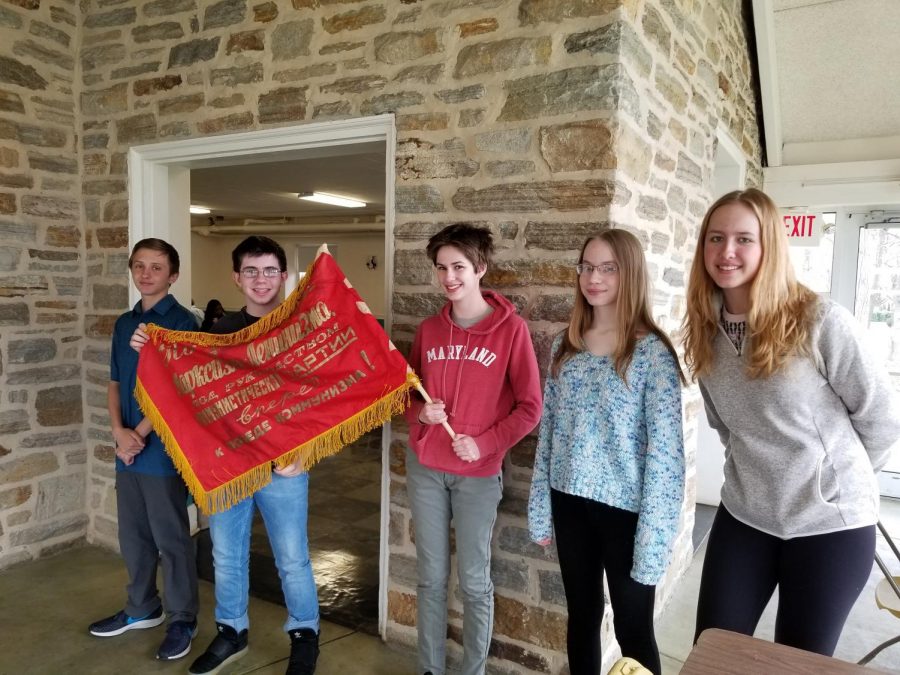Scholars go for gold in Russian Olympiada in Baltimore
Photo Courtesy of Natalia Kolodina
(Left to right) Jackson Will, Amiel Bengert, Gloria Herman, Veronica Starchenko and Anastasia Avrine, all level 3 Russian students, stand with a Russian Soviet Flag at Russian Olympiada.
May 9, 2019
Zdrastvuyte! That is Russian for “hello,” and if you think that is difficult to pronounce, just ask one of the many WCHS students taking Russian to help you. Their skills were recently tested on Apr. 2, when 11 students participated in the Olympiada of Spoken Russian at the Friends School of Baltimore.
The Olympiada takes place annually and is organized by the American Council of Teachers of Russian. It launched in the 1960’s so middle and high school students could demonstrate their skills in the Russian language and meet other Russian students in their community. The Olympiada continues to serve as a way for Russian-American heritage speakers and non-natives throughout the country to challenge themselves and learn about the culture.
WCHS received six gold medals, one silver medal and two bronze medals. WCHS junior Vladislav Khovayko was also awarded the ACTR/SLAVA Award for Outstanding Achievement in Russian Language.
“Students can jump in unknown areas and succeed because the Olympiada asks not only about language knowledge but knowledge in all kinds of topics,” Russian 1 teacher Natalia Kolodina said. “When students speak in a foreign language in front of unknown people, it takes guts and really tests his or her ability to speak. It makes their skill in speaking Russian stronger.”
The Olympiada assesses three main topics: oral speech, literature/poetry and Russian culture. Students must be able to converse with fluency, recite a poem, analyze a text in Russian and answer questions about the text. They must also describe various Russian historical figures, writers, musicians, cities, mountains, rivers, lakes, oceans, monuments and buildings. Preparation is incorporated into WCHS’ Russian curriculum, and students take two to three months studying for it.
“I gave all the materials to the students according to their level, which was chosen based on the students eligibility for ACTR Olympiada,” Kolodina said. “‘Olympians’ as I call students who are brave enough to participate in Olympiada, discuss any theme with me and help each other through question and answer.”
Students at WCHS taking Russian find that Olympiada provides a more difficult yet rewarding way to learn.
“While preparing for dialogue scenarios and a presentation/discussion on a topic, I had to learn new vocabulary words that I did not know previously,” freshman and Olympiada gold medalist Veronica Starchenko said. “One of the grading objectives in poem recitation was to read it with correct intonation and emotion, which helped me develop the way I pronounce words and the way I put stress on syllables in order to make the poem sound more lyrical.”
The Olympiada has been a regular event for WCHS students for four years, and Kolodina hopes to continue it for many years to come while still spreading the benefits of learning the Russian language and culture.
“I am very proud of my students,” Kolodina said. “Year after year, WCHS Russian students are the largest group of participants of Russian Olympiada from Montgomery County High Schools. Most of them do not give up and go again next year to the next level.”


